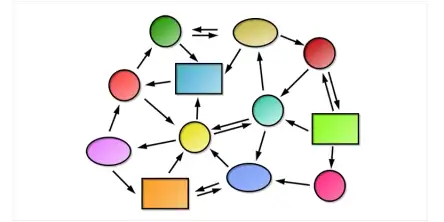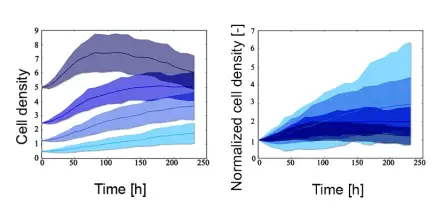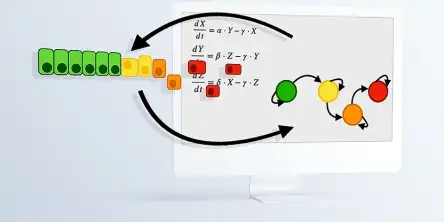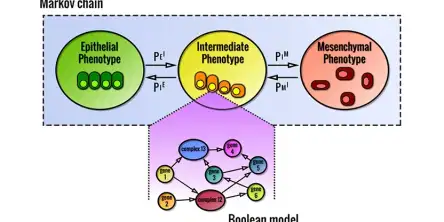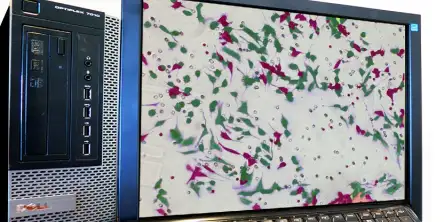Topics related by tag:
- Details
- Systems Biology
Multidisciplinary approaches prove to be helpful to investigate microenvironmental signals driving cancer cell molecular phenotype. Epithelial to Mesenchymal transition (EMT) has a pivotal role in cancer progression and metastasis formation. Coupling in silico and in vitro analyses, this manuscript gains an insight in the signal transduction cascades driven by a stiff extracellular matrix to trigg...
- Details
- Systems Biology
3D cell cultures are becoming increasingly common in-vitro approaches to study cell behaviour in more accurate and realistic settings. The experimental study of these systems, however, is complicated by the lack of non-destructive methods for the quantification of relevant properties like cell density and spatial distribution. Computational simulations can be used to address this limitation and pr...
- Details
- Systems Biology
Computational representation of complex biological processes is becoming an increasingly established approach to complement the experimental analysis and study methods to halt/redirect pathological processes. In this review paper we focus on Epithelial to Mesenchymal transition (EMT), a phenotypic transformation with a pivotal role in cancer progression and metastases formation, and present a seri...
- Details
- Systems Biology
Epithelial to Mesenchymal transition (EMT) is an exceedingly complex biological process that plays a key role in cancer progression and metastases formation. To unravel this complexity and isolate specific genetic markers important for this transition, we have developed a computational model recapitulating both single cell and population behaviours. The former was represented with a boolean networ...
- Details
- Computational Tools
Transwell assays are another common experimental approach for the quantification of migration and invasion (see also Automatic quantification of (cancer) cell invasiveness). This method relies on a semi-permeable membrane and a layer of Matrigel coating to simulate the extracellular matrix and thus represents a more realistic model of in-vivo migration. Its results, however, are highly dependent o...
- Details
- Computational Tools
Quantification of (cancer) cell invasiveness can be obtained through the "scratch wound healing assay", a simple experimental framework evaluating the rate at which the tested cells are able to fill a gap expressly produced in a confluent culture. Despite its being widely used, the approaches used to analyse this in-vitro assay lack standardization and do not allow for an accurate and objective ev...
